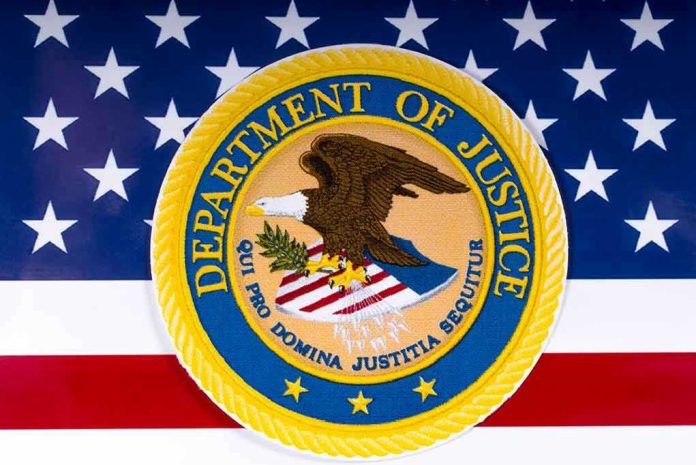
In a shocking twist of events, the alleged bias of U.S. District Court Chief Judge James E. Boasberg against Trump has ignited a political firestorm that could reshape the judiciary’s future.
At a Glance
- Judge Boasberg accused of bias against Trump and GOP priorities.
- Formal misconduct complaint filed by DOJ in July 2025.
- House Republicans, backed by Trump, pursue impeachment.
- Judicial independence and impartiality under intense scrutiny.
Judicial Bias or Upholding the Rule of Law?
Judge James E. Boasberg, appointed to the U.S. District Court for D.C. by President Obama in 2011, is now at the center of a heated debate over alleged judicial bias. Critics claim Boasberg’s rulings in politically charged Trump-related cases reflect partisanship rather than impartial justice. This controversy intensified when the Department of Justice filed a misconduct complaint against him in July 2025, citing alleged improper comments about Trump at a private Judicial Conference.
Boasberg’s history of rulings against the Trump administration, including on issues of executive privilege and congressional subpoenas, has fueled these allegations. The situation escalated when House Republicans, with Trump’s full support, launched impeachment proceedings, arguing that Boasberg’s actions undermine the rule of law and weaponize the judiciary.
The Allegations and Political Ramifications
Boasberg’s critics point to specific instances where they believe his rulings were driven by bias, including literary references to Kafka in legal opinions—a move seen by some as prejudicial in politically sensitive cases. These actions have prompted formal complaints and a political crusade to remove him from his position. The stakes are high, with implications for judicial independence and the separation of powers hanging in the balance.
The D.C. District Court, a frequent venue for high-profile political cases, is now a battleground for these debates. The formal complaint and impeachment efforts against Boasberg are unprecedented in recent history, raising questions about the boundaries of judicial conduct and political accountability. As the Judicial Conference reviews the misconduct complaint, the House Judiciary Committee holds hearings on the possible impeachment, drawing national attention.
Implications for Judicial Independence
The potential chilling effect on judicial candor and independence is a significant concern. If the impeachment or disciplinary actions proceed, it could set a precedent for using political tools against judges in contentious cases. This situation could erode public trust in the judiciary if it becomes perceived as a partisan entity rather than an impartial arbiter of justice.
Legal scholars and ethics experts emphasize that while referencing literature in legal opinions is not inherently improper, it can be controversial in sensitive cases. Former judges and bar associations call for transparency and due process in the investigation, warning that politicized complaints could undermine the judiciary’s credibility.
Broader Impact and Future Outlook
The outcome of this situation will have lasting implications for the independence of the federal judiciary and the separation of powers. The legal profession may see increased caution among judges in both public and private remarks. The broader legal and political communities are keenly observing the developments, understanding that this case could influence future challenges to judicial conduct in politically charged contexts.
As the nation watches, the drama surrounding Judge Boasberg is more than just a legal dispute; it’s a reflection of the intense polarization and the ongoing debate over the judiciary’s role in a divided America. The path forward remains uncertain, but it promises to shape the discourse on judicial impartiality and the integrity of our legal institutions.







